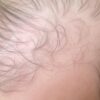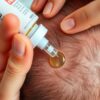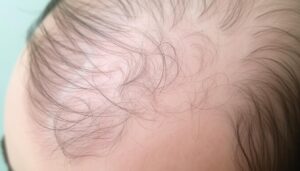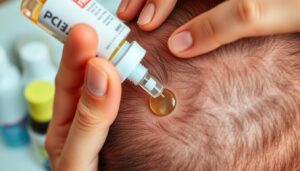Introduction
Hair loss is a common concern affecting millions of people worldwide. It can be an alarming thing to experience that impacts self-esteem and confidence. Understanding the average age of hair loss, its causes, and potential solutions can help individuals better manage this condition. This article delves into the various aspects of hair loss, including its onset, contributing factors, and available treatments.
What is Hair Loss?
Hair loss, or alopecia, refers to the loss of hair from the scalp or other parts of the body. It can occur due to a variety of reasons, ranging from genetic predisposition to lifestyle factors. Hair loss can manifest in different patterns, including thinning hair, bald patches, or complete baldness.
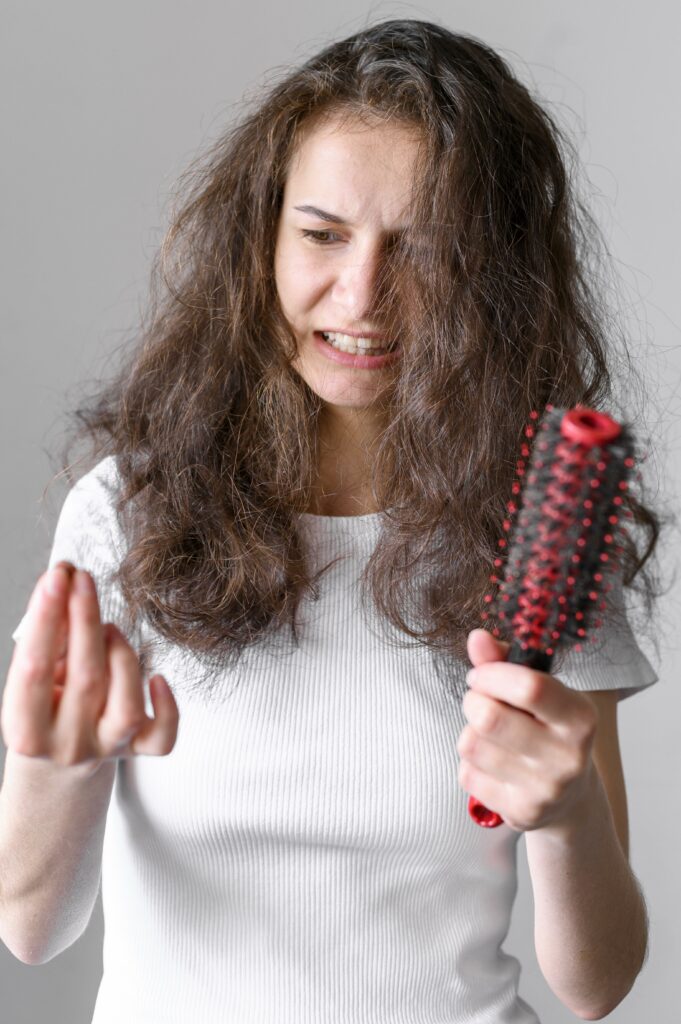
Early Onset: Late Teens to Early 20s
Hair loss can begin as early as the late teens or early 20s. This early onset is often linked to genetic factors, particularly in cases of androgenetic alopecia, commonly known as male or female pattern baldness. For men, this type of hair loss typically starts with a receding hairline or thinning at the crown. Women may notice a general thinning of hair across the scalp.
Midlife Hair Loss: 30s to 50s
For many individuals, hair loss becomes more noticeable in their 30s to 50s. During this period, both men and women may experience significant hair thinning and shedding. Hormonal changes, particularly those associated with menopause in women and decreasing testosterone levels in men, play a crucial role in hair loss during midlife.
Late Onset: 60s and Beyond
While less common, some people may not experience noticeable hair loss until their 60s or later. At this stage, hair loss can result from a combination of factors, including genetics, hormonal changes, and the natural aging process. The hair may become finer and more brittle, contributing to a gradual thinning.
Factors Contributing to Hair Loss
Genetic Predisposition
When wondering The Average Age of Hair Loss genetics is the most significant factor influencing hair loss. Androgenetic alopecia, the most common form of hair loss, is inherited and can affect both men and women. If you have a family history of hair loss, you are more likely to experience it yourself.
Hormonal Changes
Hormonal imbalances can trigger hair loss at various stages of life. In women, hormonal fluctuations during pregnancy, childbirth, and menopause can lead to temporary or permanent hair thinning. In men, changes in testosterone levels can contribute to male pattern baldness.
Medical Conditions
Certain medical conditions, such as thyroid disorders, autoimmune diseases, and scalp infections, can cause hair loss. Conditions like alopecia areata, an autoimmune disorder, result in sudden and patchy hair loss.
Medications
Some medications, including those used for cancer, arthritis, depression, and heart conditions, can have side effects that include hair loss. Chemotherapy, in particular, is known for causing significant hair loss due to its impact on rapidly dividing cells.
Lifestyle Factors
Stress, poor nutrition, and harmful hair care practices can also contribute to hair loss. A diet lacking essential nutrients, excessive use of heat styling tools, and tight hairstyles that pull on the hair can all damage hair follicles and lead to thinning.
Prevention and Management of Hair Loss
Healthy Diet and Lifestyle
Maintaining a balanced diet rich in vitamins and minerals is crucial for healthy hair growth. Essential nutrients for hair health include vitamins A, C, D, and E, as well as iron, zinc, and omega-3 fatty acids. Regular exercise and stress management techniques, such as yoga and meditation, can also promote overall well-being and reduce hair loss.
Proper Hair Care
Adopting gentle hair care practices can help preserve hair health. Avoiding excessive heat styling, harsh chemical treatments, and tight hairstyles can minimize damage to hair follicles. Using sulfate-free shampoos and conditioners designed for thinning hair can also be beneficial.
Medical Treatments
Several medical treatments are available to address hair loss. Over-the-counter options like minoxidil (Rogaine) can stimulate hair growth and slow down hair loss. Prescription medications such as finasteride (Propecia) are used to treat male pattern baldness by blocking the hormone responsible for hair loss.
Surgical Solutions
For those seeking more permanent solutions, surgical options like hair transplant surgery are available. This procedure involves transplanting hair follicles from one part of the body to the balding areas. It can provide natural-looking results but requires a significant financial investment and recovery time.
Alternative Therapies
Alternative therapies such as scalp micropigmentation and low-level laser therapy (LLLT) offer non-surgical options for managing hair loss. Scalp micropigmentation involves tattooing tiny dots on the scalp to mimic the appearance of hair follicles, while LLLT uses red light therapy to stimulate hair growth.
Psychological Impact and Support
Hair loss can have a profound psychological impact, affecting self-esteem and mental health. Seeking support from loved ones, joining support groups, or consulting with a therapist can help individuals cope with the emotional challenges associated with hair loss.
Conclusion
Hair loss is a common issue that can affect people at various stages of life. Understanding the average age of hair loss and the factors contributing to it can help individuals take proactive steps to manage and prevent it. From maintaining a healthy lifestyle to exploring medical and alternative treatments, there are numerous options available to address hair loss and improve overall hair health. If you are experiencing hair loss, Then Scalp Micropigmentation might be the best option for you. Book a consultation with a scalp micropigmentation specialist at ScalpMasters today.



